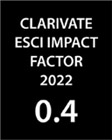About rural areas and rural development In memoriam Éva G. Fekete - Editorial
DOI:
https://doi.org/10.17649/TET.34.4.3336Keywords:
rural study, rural development, backward areas, tiny villages, community-based local/regional economic development, employment, equal opportunity, ‘peoples geography’Abstract
This thematic issue of Tér és Társadalom (Space and Society) intends to commemorate Éva G. Fekete, a researcher of rural studies. Her most important legacy is her dedication to collaboration in order to make rural areas more liveable and improve the living conditions of rural residents. ‘Thinking together’ to this end inspired the idea of this thematic issue.
The editorial foreword ‘gives the floor’ first to Éva G. Fekete herself. In a review of her studies written 10 years ago, she highlighted four topics in her research: territorial backwardness and finding solutions to it, community-based development of local economies and the economies of small regions, employment and equal opportunities. The overview of her research results provides insights into the most important topics of rural development that emerged during the two decades after the fall of communism. In the editorial foreword, the editor who had worked closely together with G. Fekete presents the approach that Éva G. Fekete adopted during her research. G. Fekete’s approach comprised critical spatial science informed by feminist social theories and her empirically grounded activities related to ‘peoples geography’.
The last part of the foreword outlines contributions in this special issue, which discuss the results of ‘thinking together’ with G. Fekete and the lessons drawn from her studies, while presenting current research in rural studies that G. Fekete would also deem as key. Such key issues include the state of place-based rural development in Hungary compared to other European experiences, and within the specific development programme of Give Kids a Chance in a disadvantaged micro-region. Changes in social and solidarity economy, again in comparison with European experiences, and trends in the public work scheme in the rural settlements of a disadvantaged region also come to the fore. Hungarian and Romanian research analyses changes in the education system in connection with employment and the social characteristics of the region Szeklerland, respectively. The closing section of this commemorative issue is a virtual debate about the milestones, successes and, even more importantly, the difficulties of rural development in Hungary over the past 20–30 years.
Downloads
Published
How to Cite
Issue
Section
License
Copyright (c) 2020 Judit Timár

This work is licensed under a Creative Commons Attribution 4.0 International License.
Authors wishing to publish in the journal accept the terms and conditions detailed in the LICENSING TERMS.






